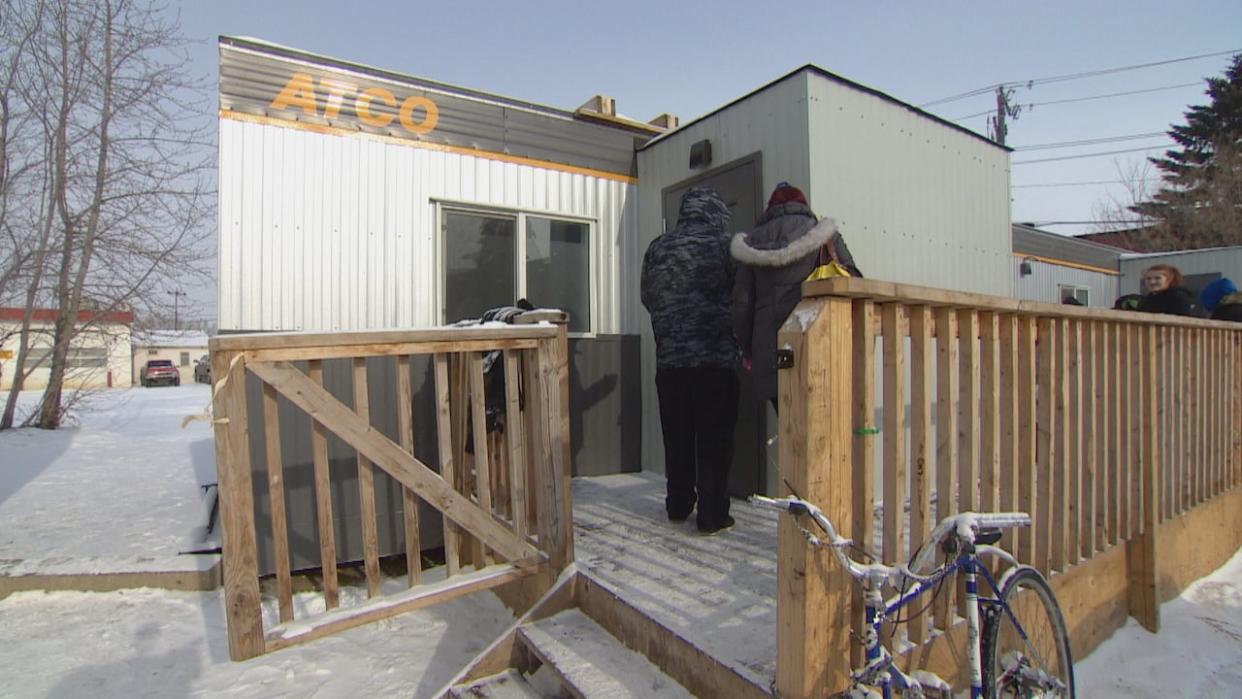Call to close Red Deer overdose prevention site up for debate at council

A Red Deer city councillor is leading a new push to close the controversial overdose prevention site near the city's downtown core.
Earlier this week, Coun. Vesna Higham tabled a notice of motion asking the provincial government to phase out the facility by the end of 2024 because residents, businesses and members of the public have been "gravely afflicted" by disorder, vandalism, property damage, and aggression near the site.
The motion calls for the province to increase access to other forms of harm reduction, such as detox beds and medication-assisted treatment.
More funding for addictions counsellors, recovery coaches, and culturally-appropriate health and wellness supports is being called for as well.
In an interview with CBC News, Higham said she knows it would be catastrophic to close the site down overnight. She says that's why her motion calls for an "orderly transition" before closing the site at the end of next year.
"We cannot simply pull the plug on the OPS tomorrow and just leave people hanging in the wind," Higham said.
Higham introduced her motion at the same meeting Red Deer city council approved a development permit from Safe Harbour Society which operates a temporary homeless shelter adjacent to the overdose prevention site.
The permit is in effect for 15 months, and has several conditions which include repairing any damaged city property such as benches, trees and curbing. It includes putting up an eight-foot non-climbable fence, and ongoing clean-up and site maintenance.
Higham said the city has spent between $1.2 to $1.3 million on repairs over the last couple of years on dealing with the damage and other impacts in the area.
She is hearing from businesses that the problems have become worse over the last six months.
"It's become very clear to me that despite our community's very best efforts to assist the provincially run shelter and OPS in mitigating these harmful impacts, we are not trending in the right direction," she said.
Movement toward recovery model
Red Deer recorded 47 drug poisoning deaths in 2022. Another 36 people have died in the first nine months of 2023, according to the most current information available from Alberta Health Services.
A spokesperson for Mental Health and Addictions Minister Dan Williams said the government will watch the outcome of Higham's motion when it is debated on Jan. 22.
"Alberta's government will continue working closely with the City of Red Deer and the broader community to put the safety and security of the community first while continuing to provide drug consumption services in a professional manner," said press secretary Callum Reid in a statement to CBC News.
The overdose prevention site was opened in October 2018 in response to surging deaths due to opioid poisonings. Services were provided by non-profit harm reduction agency Turning Point until May 2023 when the government transferred operations to Alberta Health Services.
Since the United Conservative Party formed government in 2019, there has been a move away from harm reduction measures toward an emphasis on getting people into recovery.
Red Deer is now home to two residential recovery centres — the campus operated by the province in the north part of the city, and the Dream Centre, which uses Christian teachings as part of its program.
Experts who study harm reduction measures say that eliminating places where people can consume drugs and receive medical interventions if they ingest a poisoned supply is a mistake.
Elaine Hyshka, associate professor and Canada Research Chair in Health Systems Innovation at the University of Alberta, said having supervised consumption sites is an important part of the spectrum of care, particularly for people who continue to use drugs and don't have a home where they can use safely.
She said people can relapse after leaving residential treatment facilities.
"It's important, really important to know that after a period of abstinence for somebody that's in recovery, their tolerance is way down and their risk of fatal overdose goes way up if they return to use," Hyshka said.
Rebecca Haines-Saah, an associate professor at the Cummings School of Medicine at the University of Calgary, said while it is beneficial to have a range of harm reduction and treatment models, not everyone is suited or ready for measures such as opioid agonist treatment.
She said closing a supervised consumption facility doesn't mean open drug use will go away.
"If you don't have these services where people will access them in in the heart of the city, you will have citizens encountering people overdosed or in distress or potentially, dying in our public spaces," Haines-Saah said.
But Higham argued the Red Deer overdose prevention site has been around since 2018 and the situation is only getting worse.
"We need to try something different," she said.
"Still provide harm reduction. More of them that focus on health, wellness and recovery rather than the endless revolving door of addiction, which is not getting us anywhere. It's not getting addicted, vulnerable people anywhere."


